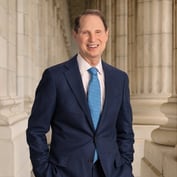ATHENS, Greece (AP) — Greece’s new technocrat Prime Minister Lucas Papademos assumed power Friday at the helm of an interim coalition government that will seek to push through tough reforms and ensure the country avoids a catastrophic default.
Papademos, a former European Central Bank vice president, leads a government including ministers from three parties. The bitter rivalry of outgoing Prime Minister George Papandreou’s Socialists and the conservatives of Antonis Samaras is being set aside as Greece’s politicians struggle to put the country back on track financially and ensure it can retain its cherished position in the eurozone.
“The new cooperation government will do the best it can to address the country’s problems, and I believe that with the cooperation of all — and the new government stresses this — and the unity of all, we will achieve that,” Papademos told Papandreou during the handover of the premiership.
Finance Minister Evangelos Venizelos retained his post, the conservatives got the key positions of foreign affairs and defense, while ministerial positions also went to members of a small right-wing party with nationalist leanings.
Papademos — who was appointed Thursday after two weeks of political turmoil that infuriated European leaders, horrified Greeks and led to mayhem on international markets — must now ensure his government passes Greece’s latest debt deal: a €130 billion ($177 billion) agreement reached by the European Union on Oct. 27.
It includes provisions for private bondholders to forgive 50 percent, or some €100 billion, of their Greek debt holdings, details of which the new government will have to negotiate.
Papademos, who also served a stint as Greece’s central bank governor and oversaw the country’s entry into the euro in 2001-2, must guide the country at a time of deep recession, with unemployment reaching a record 18.4 percent in August and Greeks furious at having to endure repeated rounds of tax hikes and salary and pension cuts.
He also must secure the next €8 billion installment of the country’s initial €110 billion eurozone and International Monetary Fund bailout, without which Greece will default in a matter of weeks. Once that is done and the country has implemented the new debt agreement, Papademos is to lead the country to early elections, tentatively scheduled for February.
Greece has had technocrats — experts in fields such as economics or management as opposed to elected officials — lead short-lived governments in the past, most recently in 1989-1990, when Xenofon Zolotas, an economist and central bank governor, led a coalition government for about four months.








 November 11, 2011 at 06:29 AM
November 11, 2011 at 06:29 AM










